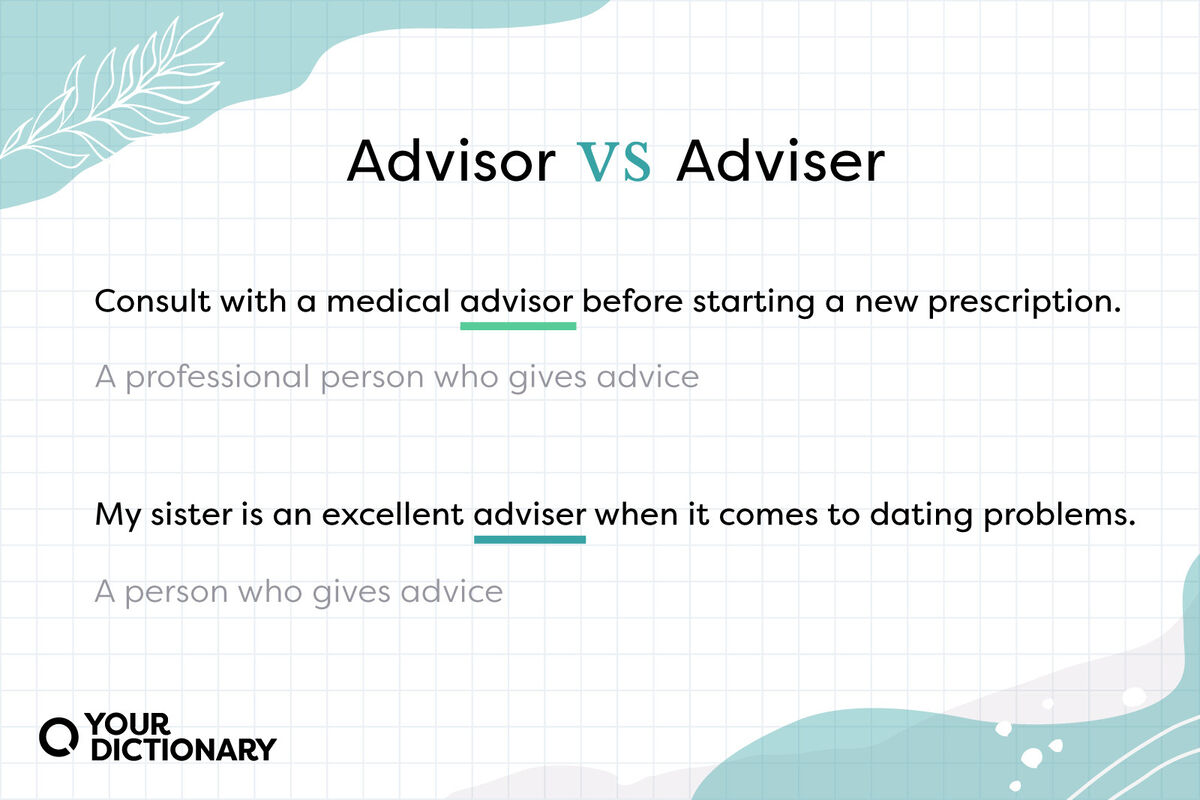
An adviser advises, obviously. So what does an advisor do? While it rarely matters which spelling option you choose, there are times when you only want to use adviser — or advisor — and it’s advisable to know when those times are.
Adviser: A Person Who Advises
The 17th-century word adviser comes from the Latin visum (“to see”) and the Old French aviser (“to consider”). When coupled with the Old French word avis, the root for advice that means “opinion or viewpoint,” and the Germanic suffix -er, you get “one who considers and gives their opinion.”
Is It Misspelled?
Those who prefer the word adviser likely think of other words that end in -er, such as baker, teacher or miser, before choosing that spelling variation. But others may look at adviser and think, “Isn’t that word spelled wrong?” It’s not — and when used to casually discuss a person who gives advice (or when using AP Style) , it’s considered correct.
And in some cases, the spelling is always adviser. The Military Adviser in the Office of Military Affairs, for example, is never the Military Advisor, and legislation such as the U.S. Investment Advisers Act of 1940 chooses advisers over advisors.
‘Adviser’ in Example Sentences
Sentences that use adviser correctly include:
- My sister is an excellent adviser when it comes to dating problems.
- If I may be an adviser for a moment, I’d tell you not to quit your job.
- New parents often hear from multiple well-meaning advisers about every part of having a baby.
Advisor: A (More Formal) Person Who Advises
If you’re still squinting at the above examples because they look incorrect, you’re not alone. The spelling variation advisor is more popular than adviser, even though the word appeared in English after the original adviser. It uses the Latin suffix -or to form the same definition as adviser: A person who gives advice. Although both spellings are technically correct, people tend to use advisor when describing an official job position (such as a financial advisor).
Why Two Spellings?
A common theory to the adviser vs. advisor debate is that advisor comes from the abstract noun advisory, so advisor must be the correct spelling. After all, supervisor comes from supervisory, and advisory is never spelled advisery. But both advisor and advisory appeared in English nearly a century after adviser did, meaning that the spelling choices have become a matter of preference rather than etymological correctness.
‘Advisor’ in Example Sentences
Although you can use both adviser and advisor to describe a person who gives advice, you’re more likely to find advisor in these official contexts:
- Consult with a medical advisor before starting a new prescription.
- Have you met with your college advisor to plan the rest of your schedule?
- We’ll form an advisory committee to discuss oversight over public funds.
Take Our Advice and Choose the Right Word
While your choice between advisor and adviser may be a toss-up, there are several word pairs where using the wrong one can cause confusion (and probably embarrassment). Clear up potential misunderstandings with: